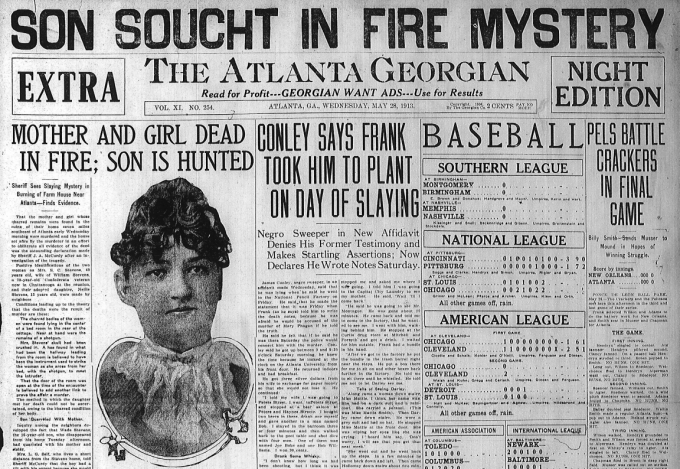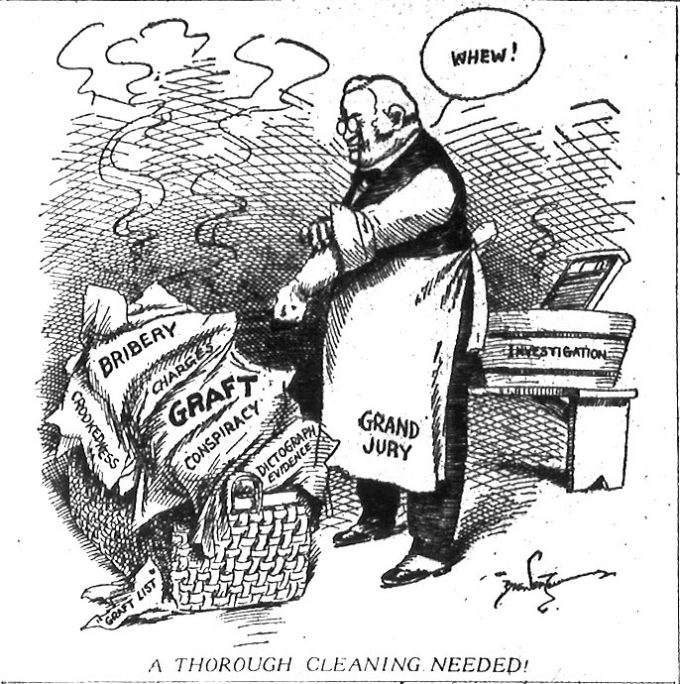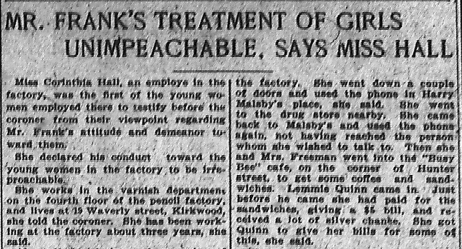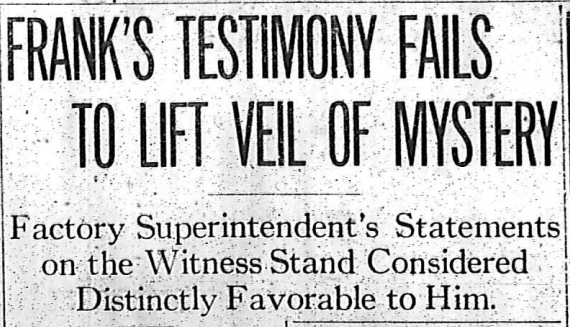 Another in our series of new transcriptions of contemporary articles on the Leo Frank case.
Another in our series of new transcriptions of contemporary articles on the Leo Frank case.
The Atlanta Georgian
Thursday, July 3, 1913
Attorney for Watchman Declares Client Knows Nothing of the Actual Crime.
Bernard L. Chappell, attorney for Newt Lee, negro night watchman at the pencile [sic] factory, held in the Phagan case, stated Thursday morning that he would swear out a writ of habeas corpus for the release of the negro.
Attorney Chappell stated that he had come to the conclusion that there was nothing the negro knew about the crime except finding the body, and that the State had no right to keep him without some charge or as a material witness.
Lee was the first suspect arrested in connection with Mary Phagan’s murder. He was ordered held by the Coroner, but when a bill of indictment was offered the Grand Jury at the same time of the Frank indictment, no action was taken against the negro.
Weak Spots in Conley Tale.
Chappell said the writ of habeas corpus would compel the State either to order the negro held as a material witness or make some charge against him.
Conley, in relating his dramatic tale of carrying the body of Mary Phagan from the rear of the second floor and disposing of it at the direction of Frank in a dark corner of the gloomy basement, said that when he reached the elevator he had to wait until Frank went into his office for a key to the elevator door.
The defense will maintain, it is understood, that the elevator door had not been locked for some time. Witnesses will be called to testify that the door had remained unlocked in accordance with instructions from the firms with which the building was insured. From this alleged circumstance, it will be argued that the negro’s story is a fabrication devised to shield himself from the charge of murder and to shift the responsibility onto another man.







